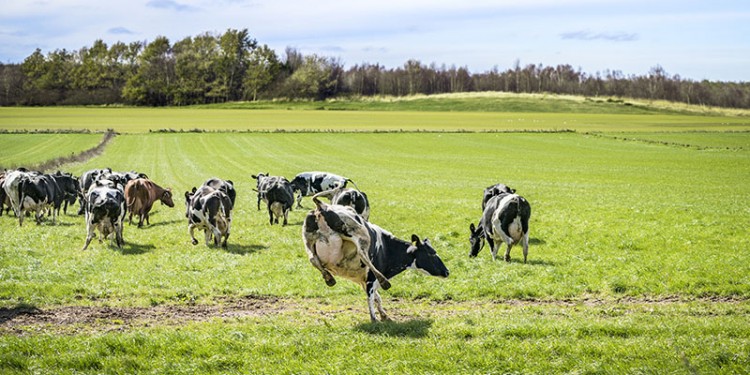
A responsibility for all living things
A gorilla mother cradling her baby in her arm. Cows running out into the open air and onto the meadow in spring. The dog wagging its tail as it welcomes its master or mistress. Are these instances of care, joy and love? In the 17th century, the philosopher René Descartes declared that animals had only instincts, but no feelings. Studies in the field of behavioural biology now strongly suggest that all mammals share basic emotional states such as fear, anger, sadness, affection or joy.
Over 300 years after Descartes’ assertion, questions regarding the ethical treatment of animals are being asked with ever greater urgency by many people – for example in connection with pets, animals in zoos and circuses, farm animals or animals used in laboratory experiments. An interdisciplinary team of researchers from the fields of philosophy, biology, medicine and theology is making a through investigation of this key issue. The “3T” project (“Tierschutz, Tierwohl und Tierethik” – in English: animal protection, animal welfare and animal ethics) combines basic research and practical research, networks relevant research activities at Münster University and raises public awareness of animal rights by means of knowledge transfer. It is one of eleven “Topical Programs” which are currently being promoted by the University of Münster.
“In the past few years there has been a marked change in people’s attitudes towards animal rights and animal welfare – it has become an issue for the whole of society,” says Prof. Sylvia Kaiser from the Institute of Neuro- and Behavioural Biology at the University of Münster. “The reason is that co-existence with animals and our dependency on them affect all areas of human life,” she explains. For example, she adds, there are doubts as to whether keeping animals in zoos and circuses is species-appropriate, and aspects such as healthy, ethically defensible food are also more important for many people than they were just a few years ago.
Many discussions, however, are very emotional in nature and the facts often get distorted. This is why one key concern in “3T” is to bring more objectivity and scientific knowledge into discussions, provide more information and reduce prejudices. “A great many researchers at Münster University have been looking at the issues of animal rights, animal welfare and animal ethics for a long time now,” says Arnulf von Scheliha, who is Professor of Theological Ethics at Münster University and initiator of the Topical Program. The project, he adds, makes it possible to bring together expertise from specific fields and to enter into discussions and match up different views.
At the centre there are three workshops dealing with the interrelationships of “3T”. For the first workshop, due to take place in early July, people representing agriculture, hunting, equestrian sport, pets and zoos were invited to attend, says von Scheliha. “We want to take a joint approach in identifying questions and problems relating to animal rights in various contexts, as regards application and use, and discuss these with a view to issues connected with animals protection and animal ethics.”
The aim is for the results of the workshops to provide the impetus for a major research project, for example a jointly submitted application for a research group to be set up by the German Research Foundation (DFG). “We see ourselves as the vanguard of a group of researchers which can expand after the workshops,” says Sylvia Kaiser. “Our aim is to have an impact within the University and in our region.”
Anyone at Münster University who is interested can join the initiative. In the coming winter semester there is to be a series of public lectures. “Knowledge transfer is so important in this case,” says Kaiser, “because the way we handle animals is a yardstick for how humane a society is – naturally taking into account economic, political and personal interests,” says Arnulf von Scheliha. “It’s an issue which concerns everyone,” adds Sylvia Kaiser. “We have a responsibility towards all living things on our planet.”
Author: Kathrin Kottke
This article was first published in the University newspaper wissen|leben No. 4, 16 June 2021.
